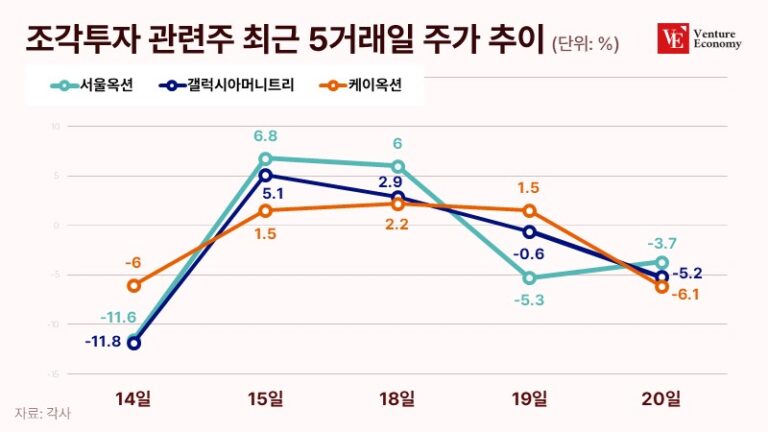“Naver and Kakao are not safe zones either.” Is AI to blame for the IT industry restructuring?
Businesses accumulating deficits, staff reductions leaving only the minimum number of employees a series of projects being discontinued as markets and companies stop growing “IT industry emphasizes non-face-to-face culture and hires more than necessary”

The information and communications (IT) industry, led by Naver and Kakao, has begun a large-scale restructuring. This is because large-scale staff reductions are being carried out mainly at subsidiaries with poor performance. There is an analysis that the IT industry, which has been experiencing rapid growth, has stopped growing and has entered a self-purification phase, including normalization of over-recruitment.
Massive layoffs since the beginning of the year, union opposition within Kakao
According to the industry on the 19th, Naver recently reduced the workforce of Cake, an affiliate that operates an English education mobile application (app), by more than 50%. Cake is one of the new business affiliates led by Naver subsidiary Snow, and was launched in March 2018 with the ambition to introduce the ‘global No. 1 language learning app’. However, it has not been able to escape the deficit every year so far. Naver decided that it would be difficult to maintain the organization due to the accumulated deficit, so it decided to maintain existing services with minimal manpower.
Following this decision, about 50% of Cake’s workforce was transferred to eight affiliates, including Snow, Naver Financial, and Cream. Naver began a large-scale business restructuring in March last year by discontinuing its movie information page, Naver Movies. Afterwards, in July, the video service platform Naver TV was integrated into another content platform Now, and in December, services such as document creation tool Naver Office, PC antivirus, and quizzes were terminated. In addition, Grafolio, PC Real Estate Auction, and Expert are planning to merge their services.
Kakao also began reducing its size in earnest in the second half of last year. Initially, Kakao showed its intention to redeploy its workforce by planning a ‘community mobility support program’ to transfer personnel from underperforming business units to other affiliates within the group, but was unable to avoid workforce reduction due to worsening financial conditions. Kakao Enterprise, a subsidiary in the business-to-business (B2B) sector, implemented voluntary retirement in August last year, and around the same time, XL Games, a subsidiary of Kakao Games, also went through voluntary retirement procedures.
As restructuring began in earnest, the atmosphere within the company froze. Kakao’s labor union, Crew Union, held a rally in front of Kakao’s Pangyo headquarters located in Seongnam-si, Gyeonggi-do in July last year and urged the company to come up with a plan to stabilize employment for its employees. Kakao said it was an inevitable choice to improve management efficiency. Bae Jae-hyun, Kakao’s head of community investment, said at the time, “We are planning to liquidate some businesses that are judged to be less competitive (for affiliates as a whole),” implying that restructuring would continue for a while.

Successive project failures in the gaming industry
When the scope is expanded beyond portal services to the entire IT industry, such job reduction movements become more active. Com2uS, an online game company, began double-digit layoffs this year following January of last year. As a result of considering the recent game market situation and business environment, we came to the conclusion that project efficiency was urgently needed, and it was an inevitable choice in this process.
In fact, Com2uS recorded consecutive operating losses from the fourth quarter of 2022 to the third quarter of last year. Although last year’s fourth quarter performance has not yet been announced, securities analysts predicted that Com2uS would record a loss of approximately 3.9 billion won. It is pointed out that, except for some mini-games, they have not been able to release any masterpieces that would attract the attention of consumers, and that operating losses are continuing in the media industry.
In addition to Com2uS, many game companies, including NCSoft, Netmarble, Nexon, and Smilegate, have reduced their businesses and reduced personnel. In particular, Netmarble notified approximately 70 former employees of Metaverse World, a subsidiary of Netmarble F&C, of recommended resignation. Metaverse World has been developing the metaverse ‘Grand Cross: Metaworld’ using Netmarble’s existing intellectual property rights (IP), but as market interest in Metaverse has waned, the project has been scrapped.
Even Google, which boasts the world’s largest search engine, could not escape the wind of restructuring. Google laid off about 12,000 people, or about 6% of its total workforce, in January last year, and also laid off hundreds of people in areas such as assistant programs and hardware early this year. Even Google, which has reigned as a leading big tech company, has been unable to find a way other than restructuring in the face of slowing market growth and worsening business viability.
“The theory of AI human resource replacement is an overinterpretation and is close to market normalization”
Some have raised suspicions that human jobs may be decreasing as IT companies increase their adoption of artificial intelligence (AI), but experts agree that this is an excessive interpretation. Many IT companies hired too much during the pandemic when they emphasized a non-face-to-face culture, and the recent move to reduce jobs is a natural trend to improve business efficiency.
The fact that Apple disbanded the development team for its voice-based AI service ‘Siri’ also lends support to this interpretation. On the 14th of this month (local time), a number of local media outlets, including Bloomberg, reported that the Siri development team in San Diego, California, was disbanded, causing more than 120 employees to lose their jobs. The industry’s main response was that Apple’s decision was the result of a thorough business analysis. The interpretation is that the project was simply discontinued regardless of the introduction of AI, as the future value sufficient to invest additional funds in technological advancement has not been confirmed.
The movement to normalize over-recruitment in the IT industry is expected to continue for some time. According to Layoff, which compiles layoffs for technology workers, 262,682 technology workers lost their jobs in the U.S. last year. This is a 59.2% increase compared to 2022 (164,969 people). A Goldman Sachs official predicted, “Up to 300 million full-time jobs around the world could disappear or be reduced due to the IT industry’s desire to improve management efficiency.”



![[기자수첩] 경영난으로 매각된 메쉬코리아와 역대 최대 흑자 배달의민족 – 경쟁과 독점](https://ipmkts.com/wp-content/uploads/sites/8/2023/11/hy_building_vte3-768x432.jpg)

![[기자수첩] 아이폰 68조 vs 갤럭시 32조, 프리미엄 마케팅 실패일까 생태계의 차이일까?](https://ipmkts.com/wp-content/uploads/sites/8/2023/11/애플삼성-768x432.jpg)



 네이버계정으로 로그인하기
네이버계정으로 로그인하기
 카카오톡 계정으로 로그인하기
카카오톡 계정으로 로그인하기
